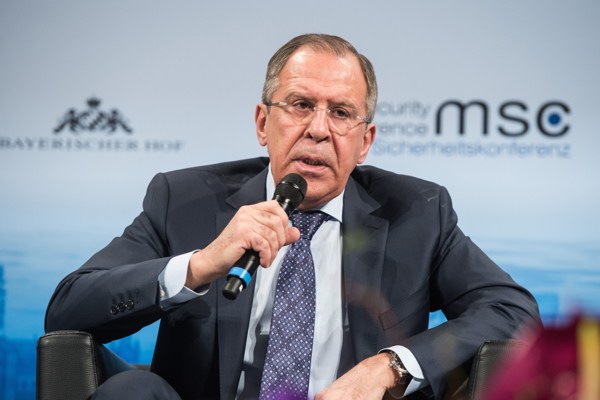Last weekend’s Munich Security Conference vividly illustrated the conflict in both vision and values between Russia and the West. The Russian delegation, headed by Foreign Minister Sergey Lavrov, pushed a narrative of Western triumphalism, Russian victimization and the likelihood of further confrontation unless the West satisfied Russian grievances. The American and European leaders at Munich, despite their differences in emphasis and tone as well as over the question of supplying arms to Ukraine, were united in challenging this narrative, portraying a Russia that is clearly violating international norms.
Lavrov denied the accusation made by many Western speakers at the conference that Russian actions in Ukraine had undermined the global order. He joined Russian parliamentarians and security analysts in depicting Moscow’s annexation of the Crimea as a liberation of ethnic Russians fearing repression by a new fascist-linked government in Kiev. They also described the pro-Moscow separatists in eastern Ukraine as having similar legitimate apprehensions, though all the Russian presentations at Munich downplayed Moscow’s military support for the insurgents.
Moreover, Lavrov insisted that the international system had been broken for years if not decades due to the West’s undermining of the United Nations Charter and Helsinki principles through unilateral military actions and the eastward expansion of NATO and the European Union. He argued that Western leaders, having won the Cold War, believed they could ignore Russia’s legitimate security interests in Ukraine and elsewhere and force Russia’s neighbors to turn against Moscow. Lavrov advocated for a comprehensive assessment of the situation instead of “considering every problem separately,” adding that “a real Europe” could not exist without Russia. The time has come, he reaffirmed, to create a common European house based on the principles of indivisible and equal security.

